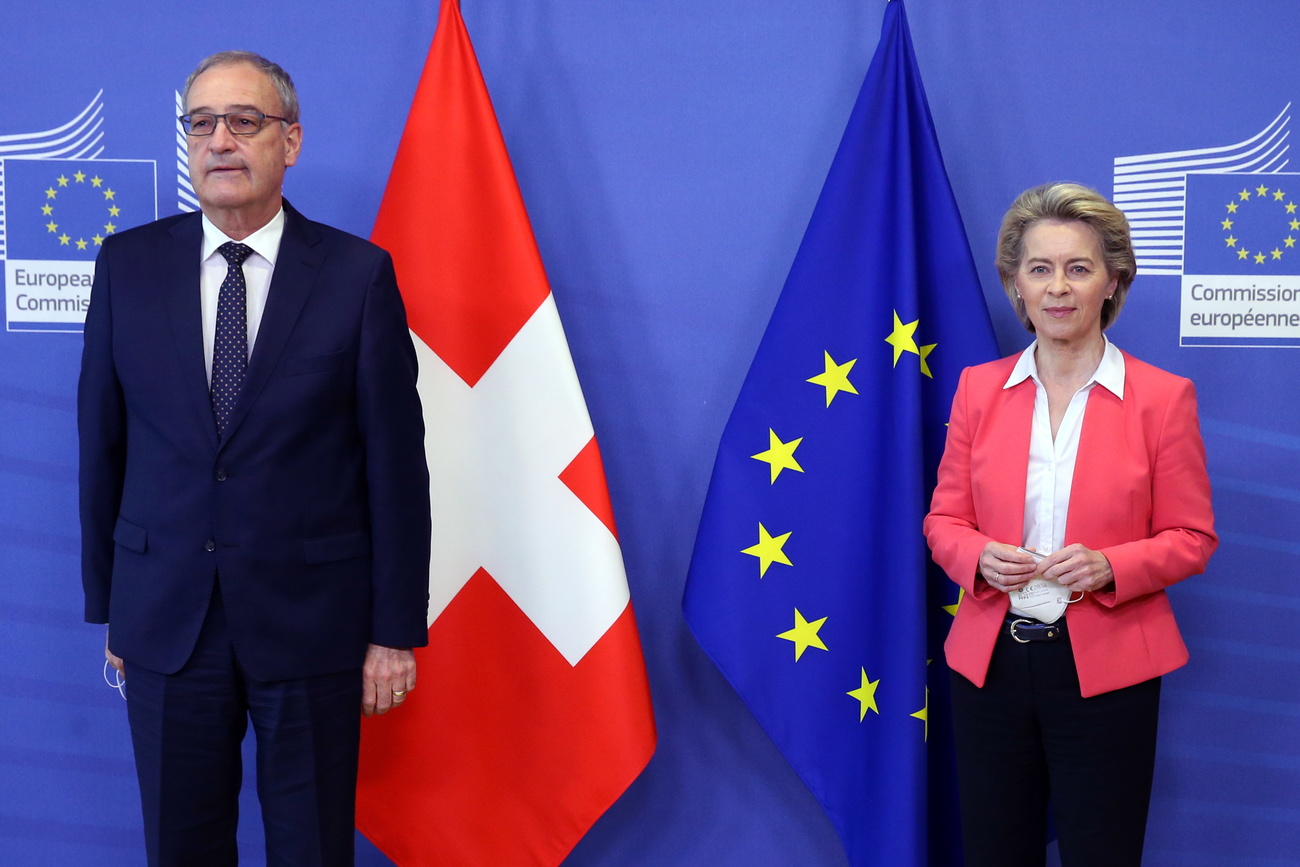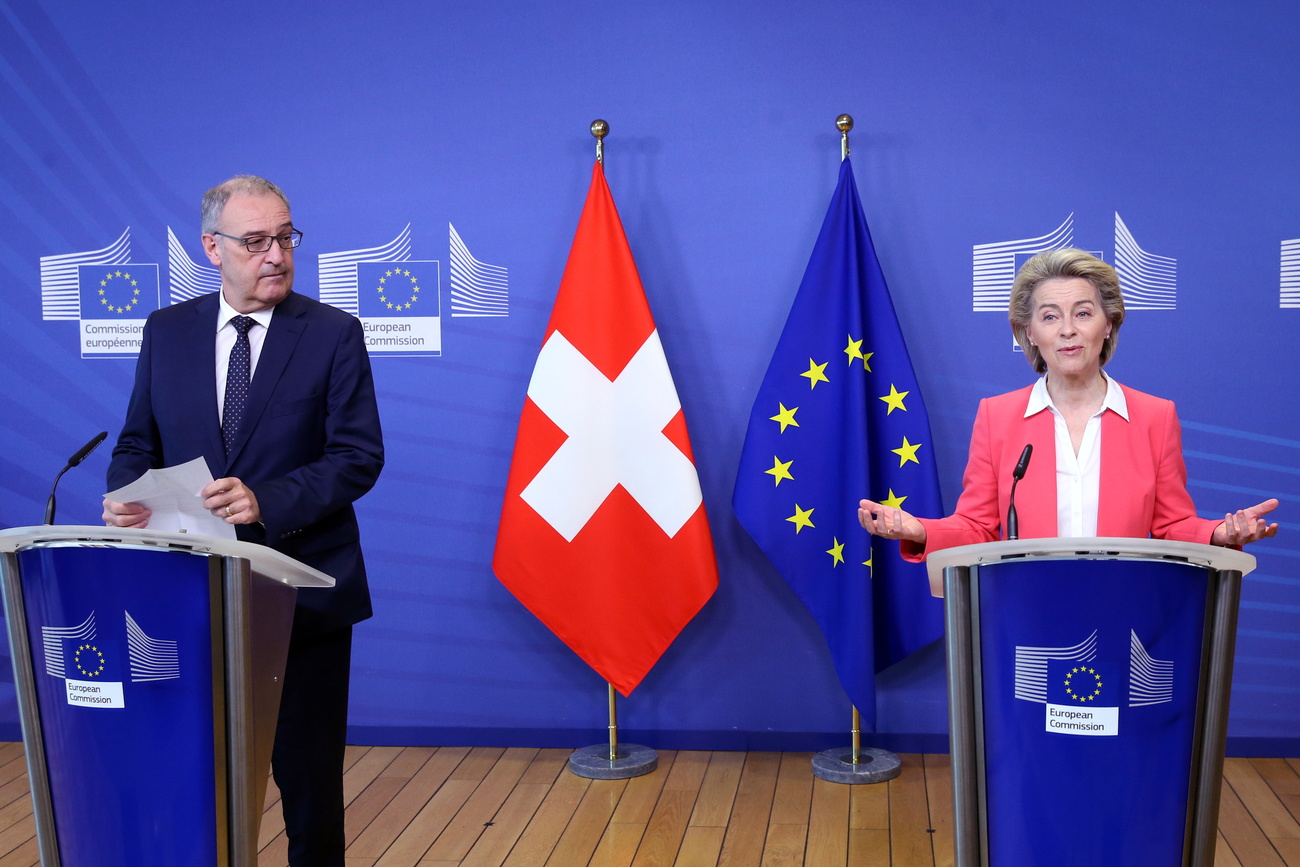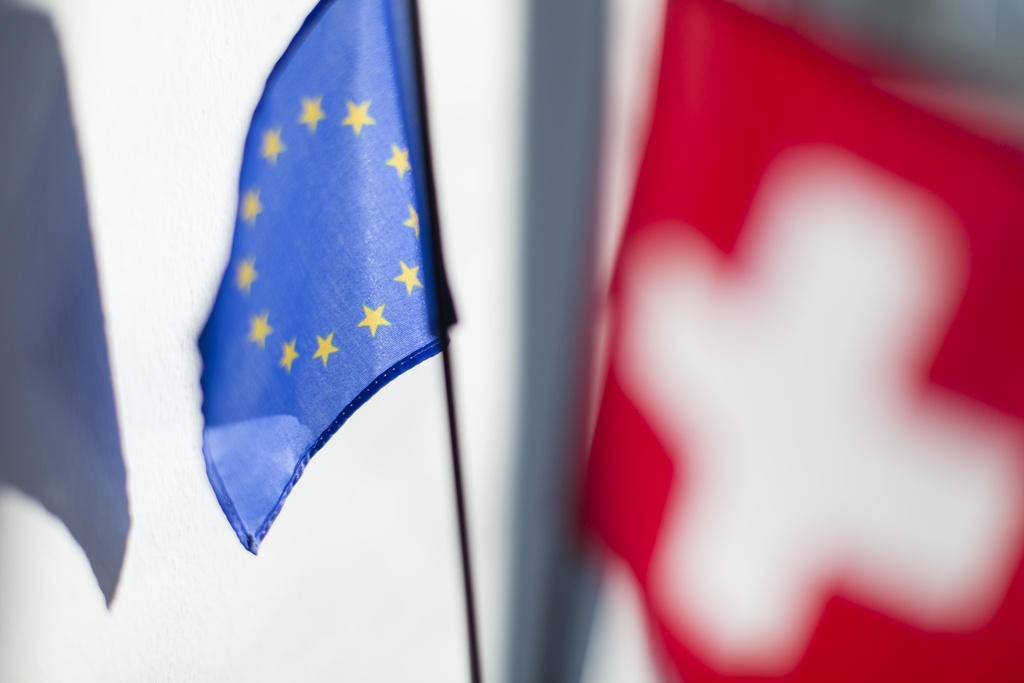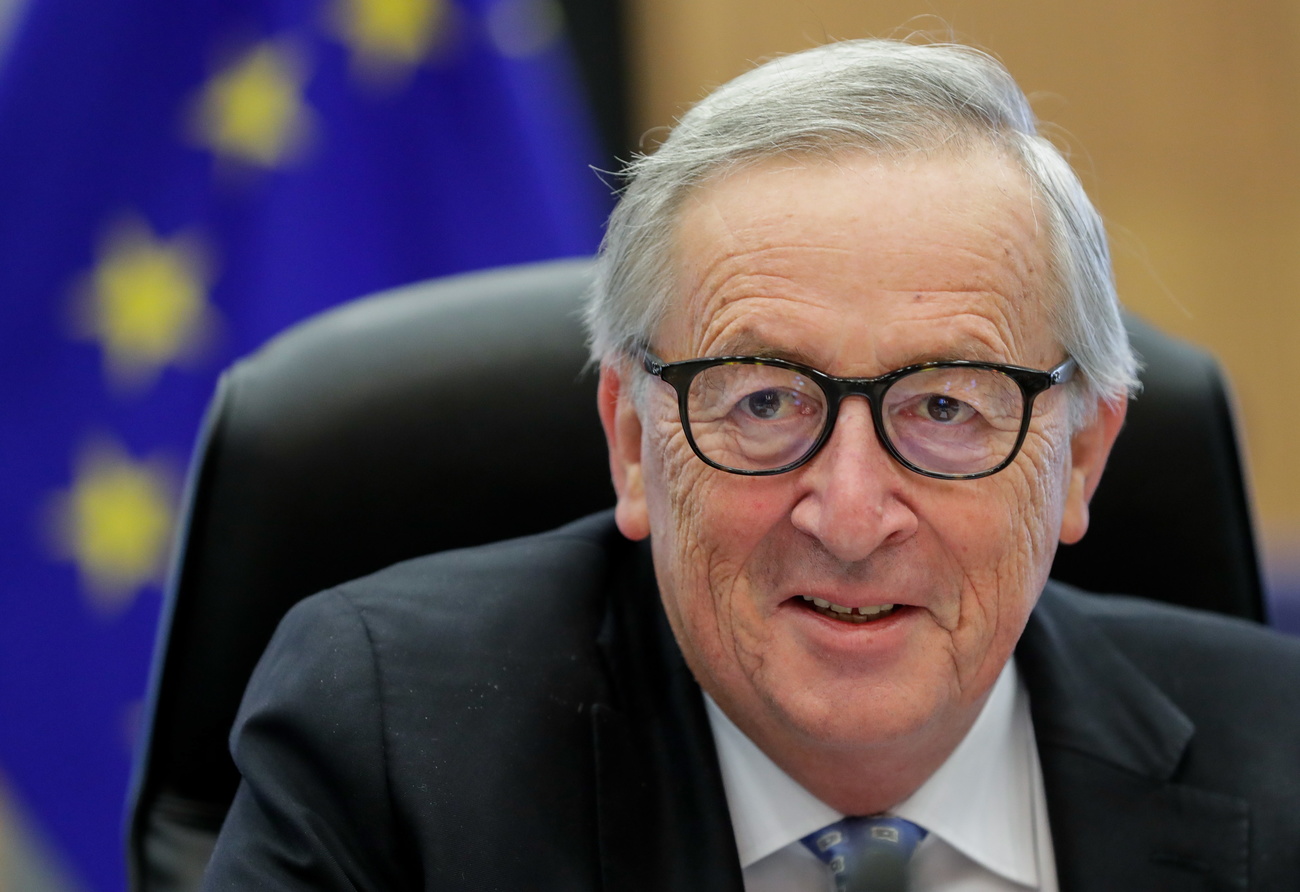
Papers read last rites to Swiss-EU deal

The chances of an agreement on future ties between Switzerland and the European Union range from “less likely than ever” to “brace for impact”, according to the Swiss media, who largely place the blame on the Swiss government’s indecisiveness and stalling.
On Friday Guy Parmelin, who holds the rotating Swiss presidency this year, travelled to Brussels for talks with European Commission president Ursula von der Leyen in the hope of breaking a negotiating stalemate over an overarching framework agreement between the two sides. He failed.
“Miracles can always happen, but on sober reflection the situation is hopeless. The car is stuck in the mud; the fronts are completely hardened, also within Switzerland,” said news website Watson.ch.
“But the government lacks the courage to come clean. […] It has allegedly been examining alternatives ‘for a long time’ in the event that an agreement is not reached. […] If this is true, the government must stop playing hide-and-seek and present a list of all the alternatives, from ‘going it alone’ to full accession. Then we’d know where things stand in black and white.”

More
Swiss-EU talks stall due to ‘substantial differences’
“Nothing will come of this framework agreement, which is meant to take our relationship with Europe into a new era,” declared the Tages-Anzeiger in Zurich.
“While the negotiations are not yet officially over, since the meeting between Parmelin and von der Leyen an agreement is less likely than ever. Our government’s collision course has at least one advantage: it’s now clearly recognisable as such. The task now is to brace for impact.”
The paper noted how big names from business had recently – and plausibly – explained why a framework agreement was needed. “The government must now explain to them what strategy it has in case of failure – how we can find a new basis with the EU and why it’s still worth investing in Switzerland as a business location despite the legal uncertainty.”
‘Failed mission’
The Neue Zürcher Zeitung said there were “growing signs” that an agreement was out of reach.
“Parmelin didn’t break off the exercise on Friday after his meeting with Ursula von der Leyen – the two chief negotiators are to remain in contact – but the two parties would have agreed on further talks had there been movement at the political level. Parmelin’s visit to Brussels made it clear how big the differences remain.”
It said a “final rescue attempt was in theory conceivable”, but it would a U-turn if the EU were to move on citizens’ rights and wage protection after the Swiss president’s visit.
“The government should not delude itself after Parmelin’s failed mission – it should be honest and stop stalling the EU. The demands from Bern remain manifestly unacceptable to Brussels.”
The Schweiz am Wochenende was more optimistic – or at least less pessimistic. While admitting that the two sides were so far apart that it would be difficult to get a good result, it said the framework agreement wasn’t as bad as some parties and interest groups made it out to be.
“It offers an overall workable model of how to continue on the successful bilateral path. Alternatives are hard to find.”
What happens next? Negotiators have no option but to keep trying to find a convergence of positions, it concluded.

More
What is this EU framework deal?
“The bone of contention – in the form of the institutional agreement on relations between Switzerland and the EU – is visibly rotting,” said La Tribune de Genève and 24 Heures in French-speaking Switzerland.
“On Friday the fundamental positions in Brussels didn’t change one iota. […] The decomposition is now very far advanced. But no one wants to be seen as the ‘culprit’ who throws the bone onto the compost heap and moves on to something else. So people continue to pretend that a solution is possible.”
For Le Temps in Lausanne, the problem lay with Switzerland. “By taking advantage of the government’s silence on the dossier, opponents have had an easy time for months declaring the agreement clinically dead,” it wrote.
“Since January, representatives from business and education as well as from research and innovation, in short civil society, have been calling – like never before – for a stable relationship with the EU. Because that’s what’s at stake with the framework agreement: the future of generations to come.”

More
Juncker: EU-Swiss talks must go on

In compliance with the JTI standards
More: SWI swissinfo.ch certified by the Journalism Trust Initiative


























Join the conversation!